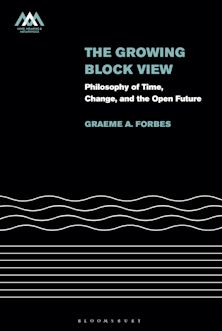How Scientific Instruments Speak
Postphenomenology and Technological Mediations in Neuroscientific Practice
How Scientific Instruments Speak
Postphenomenology and Technological Mediations in Neuroscientific Practice
This product is usually dispatched within 1 week
- Delivery and returns info
-
Free US delivery on orders $35 or over
Description
Science is highly dependent on technologies to observe scientific objects. For example, astronomers need telescopes to observe planetary movements, and cognitive neuroscience depends on brain imaging technologies to investigate human cognition. But how do such technologies shape scientific practice, and how do new scientific objects come into being when new technologies are used in science?
In How Scientific Instruments Speak, Bas de Boer develops a philosophical account of how technologies shape the reality that scientists study, arguing that we should understand scientific instruments as mediating technologies. Rather than mute tools serving pre-existing human goals, scientific instruments play an active role in shaping scientific work. De Boer uses this account to discuss how brain imaging and stimulation technologies mediate the way in which cognitive neuroscientists investigate human cognitive functions. The development of cognitive neuroscience runs parallel with the development of advanced brain imaging technologies, drawing a lot of public attention-sometimes called “neurohype”-because of its alleged capacity to demystify the human mind. By analyzing how the objects that cognitive neuroscientists study are mediated by brain imaging technologies, de Boer explicates the processes by which human cognition is investigated.
Table of Contents
Introduction: Technological Mediations and (Neuro-)Scientific Practice
Part 1: Towards a Theory of Technological Mediations in Scientific Practice
Chapter 1: Scientific Instruments as Mediating Technologies and the Collectivity of Scientific Practice
Chapter 2: “Technology” and “Human-Technology Relations”
Chapter 3: Science and the Theoretical Disclosure of Nature
Chapter 4: To the Scientific Objects Themselves: Gaston Bachelard's Phenomenotechnique
Chapter 5: Bruno Latour and the Difference Between Technical and Technological Mediations
Part 2: A Postphenomenological Ethnomethodology of Neuroscientific Practice
Chapter 6: Postphenomenology as Ethnomethodology: Studying How Reality is Accomplished Through the Appropriation of Technological Mediations
Chapter 7: Constituting “Visual Attention” in the Cognitive Neurosciences
Chapter 8: “Braining” Neuropsychiatric Experiments
Conclusion: A Philosophy of Technological Mediation as a Philosophy of Scientific Practice
Product details
| Published | Jan 14 2021 |
|---|---|
| Format | Hardback |
| Edition | 1st |
| Extent | 232 |
| ISBN | 9781793627841 |
| Imprint | Lexington Books |
| Illustrations | 2 b/w illustrations; |
| Dimensions | 9 x 6 inches |
| Series | Postphenomenology and the Philosophy of Technology |
| Publisher | Bloomsbury Publishing |
Reviews

ONLINE RESOURCES
Bloomsbury Collections
This book is available on Bloomsbury Collections where your library has access.



































